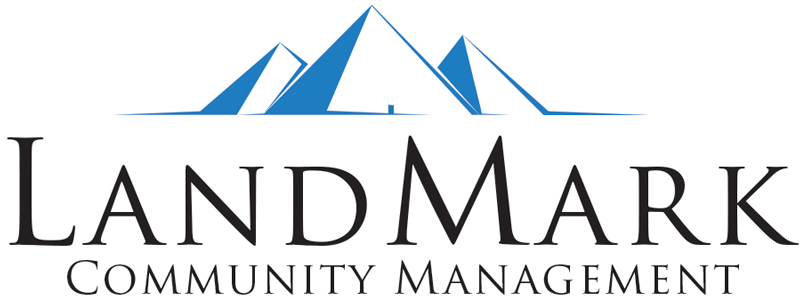Board members do their best to keep the community’s finances afloat. Even then, the HOA can still end up with an HOA budget deficit. When that happens, the HOA board should know how to address the deficit and develop solutions to get the association back on track.
What is an HOA Budget Deficit?
An HOA budget deficit simply means the association’s expenses are higher than its income. It is when the HOA doesn’t have enough money to cover its costs. There are several reasons why an HOA would run into a deficit. The important thing is for the HOA board to learn how to resolve the deficit and implement strategies for future prevention.
Common Causes of an HOA Budget Deficit
A budget deficit happens more often than one might think. Here are the most common causes of an HOA budget deficit.
1. Unexpected Expenses

An HOA board can plan its budget carefully, but unexpected expenses can easily throw things off course. Emergencies, such as natural disasters and a sudden plumbing issue, can cause costs to skyrocket.
Worse yet, these emergencies are called emergencies for a reason. Associations can’t predict them. As such, many communities are ill-prepared to handle the aftermath when they do arise. They usually have no contingency fund set aside for these types of situations.
Emergencies are not the only things to worry about, though. Board members should also address small problems as soon as possible. These problems may seem inconsequential initially, but they can snowball into irreversible and expensive problems with time.
2. Poor Budget Planning
Sometimes, an HOA budget deficit occurs simply because of poor budget planning. Some communities are lucky enough to have experienced board members. However, plenty of others have inexperienced ones.
Proper budget planning requires a certain level of skill and financial understanding. Amateurs may not know how to account for future repairs, underestimate costs, and overestimate revenue.
While examining the previous year’s budget is a good starting point, it shouldn’t be the board’s only strategy. The board must adjust for changes, especially if there are large shifts within the community and in the economy.
3. Mismanagement or Misuse of Funds
Financial management is a key aspect of running an HOA community. Unfortunately, many board members don’t know how to do this properly. They overspend on unnecessary expenses or leave urgent projects at the last minute. They lack proper oversight, quickly depleting the association’s funds.
In more extreme cases, the misuse of funds may occur – with or without the board’s knowledge. Fraud, embezzlement, and theft are far too common within the HOA industry. The HOA board should prevent this by regularly reviewing the association’s finances and placing strict internal controls.
4. Delinquent HOA Fees
When homeowners stop paying their dues, it can halt cash flow, rendering the HOA insolvent. Associations rely on homeowner fees to fund expenses. As such, when these funds stop coming in, the HOA might have a hard time covering even the most basic expenses.
5. Underfunding of Reserve Accounts
Many HOAs are required, by law or by their governing documents, to maintain reserve funds. These reserves cover the cost of major repairs and replacements in the future.
However, many HOAs are not required to maintain reserves, leading to a lack of funding. With underfunded reserves (or no reserves), the HOA must use its operating fund to cover big-ticket items. This will leave less funds available for other regular expenses, resulting in an HOA budget deficit.
6. Inflation and Rising Costs

Economic factors can also affect an HOA’s budget. Inflation can raise the cost of services and materials. Because of this, vendors will charge more, catching HOAs by surprise. If the board does not account for external factors in its budget planning, it will be in for a deficit.
How to Deal With an HOA Budget Deficit
Budget deficits can be detrimental to an HOA. Fortunately, some actions can help clear an HOA cash deficit and pull the association out of debt. Here are some of the most effective strategies.
1. Re-evaluate the Budget
The first step in solving a budget deficit is reviewing the current budget. The HOA board should examine all expenses closely, identifying areas where they can cut back or postpone costs. Adjusting spending to better suit the needs and condition of the HOA’s finances can help get things back on track.
2. Increase HOA Fees
Boards are likely going to get some negative reactions from homeowners. However, sometimes, the only way to get out of a deficit is to increase regular dues. The HOA board can increase gradually to make the burden more manageable for owners. It is also important for board members to clearly explain why an increase is necessary. Practicing transparency builds trust.
It is worth noting, though, that some states have laws that limit dues increases. An HOA’s governing documents may contain similar restrictions. In Texas, though, an HOA board can generally raise dues without a cap. However, the board must discuss and vote on the increase at an open board meeting.
3. Levy Special Assessments
The HOA board may need to levy special assessments for more urgent cases. A special assessment is usually a one-time fee charged to homeowners. Some associations may break the special assessment into installments, lessening the financial burden.
As with raising regular dues, special assessments may have limitations based on state laws and the governing documents. In many associations, a vote from the membership will likely be necessary for any special assessments higher than a certain amount. Keep in mind, though, that special assessments should come rarely.
4. Cut Non-Essential Expenses
If any non-essential expenses are on the budget, the HOA board can reduce or eliminate them – at least until the association is back in good standing. This is an immediate solution that brings immediate results. The HOA can also delay non-urgent projects to free up funding.
5. Improve Collection of HOA Dues
If an HOA has a high delinquency rate, it should work to improve its collection methods. The HOA board must reduce this rate by enforcing stricter policies for collecting unpaid dues. When the board doesn’t go after delinquent owners, they become more lax, and more owners will follow suit.
6. Seek Professional Assistance

Board members shouldn’t hesitate to hire professionals to help manage the HOA’s finances. The board can enlist the services of a financial advisor, an accountant, or an HOA management company. These professionals are well-versed in budget planning and spending. They can come up with long-term solutions for the HOA.
7. Re-negotiate Vendor Contracts
If a vendor’s prices have become too high, board members should try to renegotiate the terms. Another option is to look for other vendors who offer lower prices. These decisions can help save the HOA money without compromising quality.
8. Maintain Well-Funded Reserves
A reserve fund can protect the HOA’s finances in the long run. Even if state laws and governing documents don’t require it, an HOA should maintain a reserve fund for future costs. Building the reserve over time is far wiser and more manageable than charging an exorbitant, one-time fee.
9. Be Transparent
The HOA board needs to remain transparent with homeowners about the association’s financial situation. Transparency will increase trust and allow owners to understand the board’s decisions better.
Not a Lost Cause
An HOA budget deficit can have several repercussions, but it’s not hopeless. Board members should take proactive steps to resolve a budget deficit and get the association back in order.
Landmark Community Management can help communities with HOA financial management. Call us today at 512-569-5527 or contact us online to learn more!
RELATED ARTICLES:


